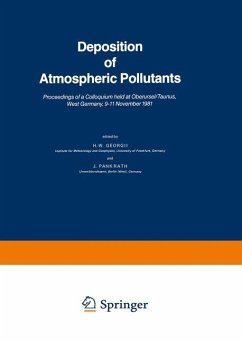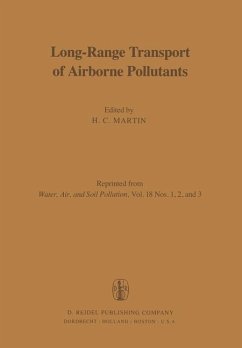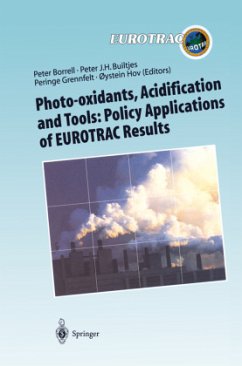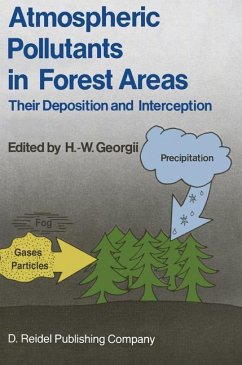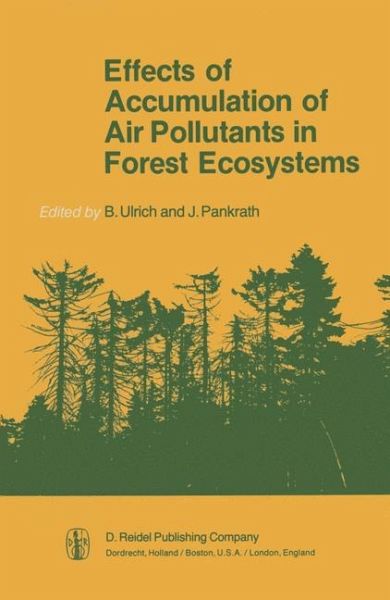
Effects of Accumulation of Air Pollutants in Forest Ecosystems
Proceedings of a Workshop held at Göttingen, West Germany, May 16-18, 1982
Herausgegeben: Ulrich, B.; Pankrath, J.

PAYBACK Punkte
58 °P sammeln!
This volume is based on a workshop on "Effects of accumulation of air pollutants in forest ecosystems'; held in GOttingen, Federal Republic of Germany, from May 16-18, 1982. This work'shop was initiated and sponsored by the Environmental Agency of the Federal Republic of Germany (project officer: Dr. J. Pankrath) as part of a research contract (project leader: Dr. B. Ulrich). THE PROBLEM SEEN UNDER THE ASPECT OF ADMINISTRATION The problem of forest damage caused by air pollution is not new in Europe. Already in 1983 a comprehensive report from Schroeder and Reuss about vegetation damages by fu...
This volume is based on a workshop on "Effects of accumulation of air pollutants in forest ecosystems'; held in GOttingen, Federal Republic of Germany, from May 16-18, 1982. This work'shop was initiated and sponsored by the Environmental Agency of the Federal Republic of Germany (project officer: Dr. J. Pankrath) as part of a research contract (project leader: Dr. B. Ulrich). THE PROBLEM SEEN UNDER THE ASPECT OF ADMINISTRATION The problem of forest damage caused by air pollution is not new in Europe. Already in 1983 a comprehensive report from Schroeder and Reuss about vegetation damages by fume in the Harz mountains was published. In 1923, Prof. Dr. Julius Stocklasa of the Bohemian Technical Highschool in Prague was concerned with research of toxical effects of sulphur dioxide in his publication "The damage of vegetation by flue gas and exhalations of facili ties". This comprehensive and instructive work concludes with the sentence: "It is already high time for the governments of all cultural states to take legal, police and private measures in order to prevent damage by flue gases". In the neighbourhood of industries with high gaseous and dust emissions damages have been shown to occur for a long timei these deleterious effects have influenced the growth of trees and in extreme cases have even caused their early death.





